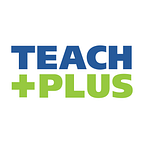I Feel Differently About Myself as an Educator Now. That’s OK.
By Kevin Cormier
I am a runner. In May and June 2020, I logged back-to-back 200-mile months. I was hitting some of my highest volumes of running since I first took up the sport in 2013. And then, at the beginning of July, something changed. I began to experience some breathing problems, and I watched as my pace and endurance began to dwindle. This has led to many hours of self-reflection and self-assessment. And the only thing I could settle on was, “This is who I am now.”
Simultaneously, this is also how I feel about myself as an educator. My pre-pandemic and post-pandemic professional selves are markedly different, the need for self-reflection and self-assessment. And ultimately, I realized three truths:
Your definition of success may change, and that’s OK.
I have some running goals that may now be unattainable, one of which was to run all six World Major Marathons in under four hours. I am halfway there. My next marathon will be the Marine Corps Marathon on Halloween, and my goal has been moved to five hours. Because that is who I am now.
The same will go for students. I cannot stand the phrase “learning loss.” Students still learned a lot during the past 18 months, but their learning may not be measurable by standards. Students in my classroom, for example, became fluent in collaborative technology like Google Slides and other skills that will translate to future success. Sure, some foundational skills like early reading instruction and some math concepts may be lacking, but we’ll get them there, just maybe not at the pace we’re used to having. And the flipside of that? Maybe we’ve also learned a thing or two about addressing more of the overall needs of students, rather than just what state tests dictate.
Your support system may change, and that’s OK.
One of the things that has made me a better runner in recent years is the group of other runners with whom I train. I found some people locally who had the same goals, same basic pace, and were fun to be around, but going forward, those supports will disappear because they still have their needs, and I cannot be a part of their plan like I was before. I need to find new people, at my new pace, and use a new support system to get better.
The pandemic brought to light a lot of philosophical differences in education as well. When we are not able to do “normal” — for better or worse — the natural response is to find a place of comfort and control to anchor ourselves in a sea of uncertainty. For some educators, the only way out was through, and finding new strategies, new priorities, and being progressive. For others, it was a return to a more traditional sense of being. And that’s not to say anyone is right or wrong, but rather a clarity in who that support system is and that it may look different than it did pre-pandemic.
You may be reliant on others to succeed, and that’s OK.
I am not fast enough to qualify for the World Major Marathons. This means that to participate, I either need to win lotteries or run as a charity runner and raise funds. In either case, I need some luck as well as the support of those around me to accomplish the goal. Even though I must train and run the marathon myself, in none of these cases will it be an individual accomplishment.
For educators, this is certainly the case. General attitudes about education overall, and educators specifically, are now all over the map. How much should we tie ourselves to what we were doing before the pandemic, versus using this as an opportunity to blow everything up and restructure our education system to meet the needs of students who will come out of this traumatic experience? Some educators will be fortunate enough to have administrators who recognize that we are entering a new phase of education and will give their staff the freedom to experiment and innovate. Others may be getting pressure from families and the community to quickly return to the status quo.
What “success” looks like in 2021 and beyond deserves a full and deep conversation by all stakeholders and should not be left to individual educators to decide for themselves without support. And administrators cannot take on this work themselves — they should be encouraging teacher leadership to help shape these desired outcomes, because they were in the trenches this year and no plan works if the people tasked to execute it do not find it feasible.
We are all different people now than we were two years ago. All our school years looked very different this past year, but there will be more uniformity in certain structures come August. This is why it is imperative that all educators take the time to reflect upon the new version of themselves, recalibrate what success means to them and who can help them achieve it, and feel confident that when they walk into their classrooms in the fall, routines and expectations may be different, but the mission of doing best by students still remains.
Kevin Cormier teaches math at Nissitissit MIddle School in Pepperell, Massachusetts. He is a Teach Plus Commonwealth Senior Policy Fellow.
